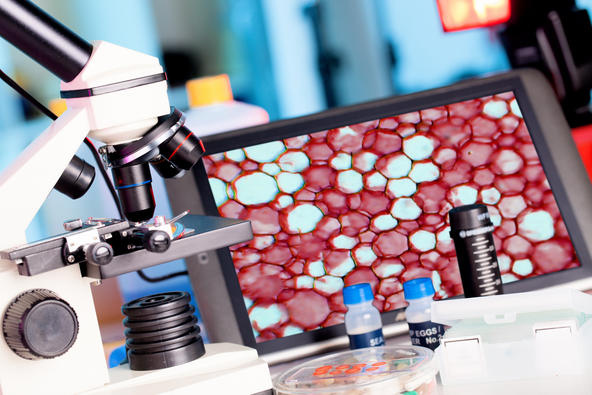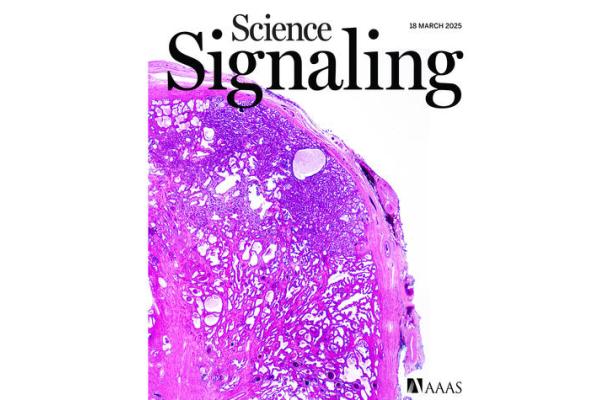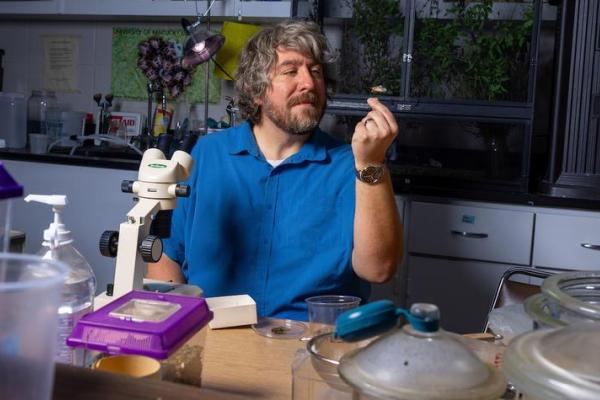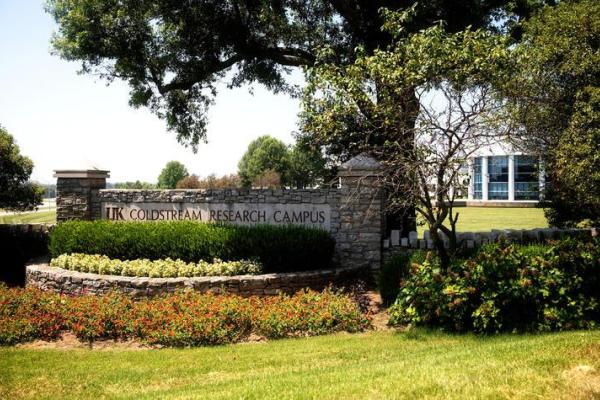Markey Global Cancer Consortium Studies New Option for Diagnosing Lung Cancer

Tumor biopsies are currently the most common tool for diagnosing lung cancer.
However, according to a new paper published by the University of Kentucky and Manipal Academy of Higher Education, there is evidence that liquid biopsies – obtained from a blood sample – have the potential to replace tumor biopsies that require patients to undergo a surgical procedure.
Published in Molecular Cancer, the work was led by Jill Kolesar, Pharm.D., director of the Precision Medicine Center, co-chair of the Molecular Tumor Board for the UK Markey Cancer Center and a professor in the UK College of Pharmacy; Vivek Rangnekar, Ph.D., Markey associate director and Global Cancer Consortium founding chair; and Mahadev Rao, Ph.D., professor and head of the Department of Pharmacy Practice at Manipal Academy of Higher Education.
The Lung Cancer Research Foundation reports that lung cancer is the leading cause of cancer death worldwide. Over the last 20 years, a focus on genomics research has led to a better understanding of tumor mutations in lung cancer and assessing these mutations is now routinely performed as standard of care.
Epidermal growth factor receptor (EGFR) is the most broadly studied genomic driver of lung cancer. These mutations are the known drivers of lung cancer that account for 10-15% of lung cancer diagnoses. Understanding tumor mutations, hereditary mutations and variations in drug metabolizing enzymes is critical to individualize cancer treatment for each person.
Tissue biopsy is the gold standard for selecting targeted therapies, especially in the case of non-small cell lung cancer patients. However, since tumors shed cancer cells and their DNA/RNA into the bloodstream, liquid biopsies are emerging as a testing method for cancer mutations. Liquid biopsies – obtained from a blood test – have the added advantage of being able to test for hereditary genes, including those responsible for cancer predisposition and drug metabolism. Additionally, compared to tissue biopsies, liquid biopsies are less invasive, reduce procedural complications and can serve as a tool for monitoring EGFR treatment resistance and efficacy.
“Putting all of this information together is truly a way to personalize cancer care, from selecting the right drug, giving the right dose and informing individuals about future cancer risk,” said Kolesar. “Integrating this data into a single liquid test could have a profound impact on patient care.”
*****
This work represents an important collaboration between UK and Manipal Academy of Higher Education that was facilitated by the Global Cancer Consortium. The consortium was formed in 2020 by faculty from the UK Markey Cancer Center and Mayo Clinic in the United States and premier cancer centers in India – including Tata Memorial Centre, Saroj Gupta Cancer Centre and Research Institute and Manipal Academy of Higher Education. The goal of the consortium is to promote partnerships in global cancer research, education and outreach activities.
“Training the next generation of scientists is a key objective of the consortium,” said Rangnekar. “As the consortium continues to expand, so does our capacity to make a difference in the world of cancer research – beyond what can be accomplished by the individual institutions.”
The consortium is enabled by structure, with various committees jointly planning and contributing to the basic and translational cancer research, clinical research, educational and outreach activities. Its educational activities include monthly seminars in the Cancer Biology and Therapy Series, Cardio-Oncology Series and Community Outreach Series, five mini-symposia per year and an annual conference with an audience representing six continents and speakers from the U.S., Canada, India, Australia, Singapore, several countries in Africa, Asia and Western Europe.
University of Kentucky campus faculty and trainees from the UK College of Medicine, College of Pharmacy and College of Public Health participate in these events.
“Symposium participants from the greater cancer community benefit from the concepts and technologies that can provide personalized treatment for each patient at various participating institutions,” Rangnekar said. “Our events provide awareness about various cancers, their treatments and resources available for their prevention, mitigation and management at the partnering institutions.”
Resources developed in the consortium are shared in a timely manner with the greater scientific and cancer research community, for the benefit of cancer researchers, patients and survivors. The consortium has helped participants to broaden their perspective on global cancer research and the collaborations provide an appreciation of similarities and differences in cancer trends in various parts of the world, which allow better personalized treatment of patients.
The Global Cancer Consortium will host an upcoming series called Cancer Perspective that will include inspirational and visionary talks on emerging and future trends in cancer. Speakers may draw analogies from other sectors, including but not limited to Industry 4.0 or Digital Engineering, to predict whether emerging or established models can be adapted for effective cancer care.
More from this series Research Priorities - Cancer
Credits
Mallory Olson (Public Relations & Strategic Communications)



